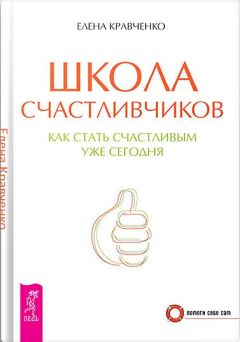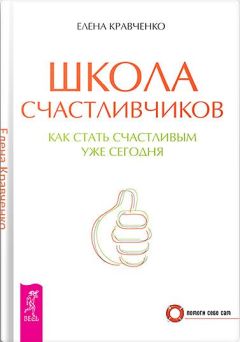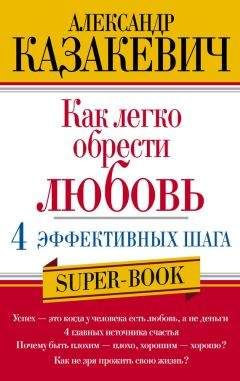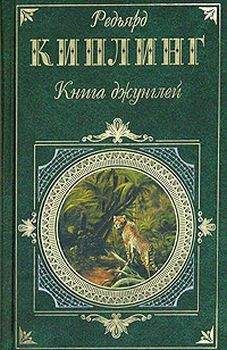Редьярд Киплинг - Английский с Редьярдом Киплингом. Рикки-Тикки-Тави / Rudyard Kipling. Rikki-Tikki-Tavi
But, since native children have no nerves worth speaking of, in two hours he was lying very contentedly in Petersen Sahib’s hammock with Petersen Sahib’s shooting-coat under his head, and a glass of warm milk, a little brandy, with a dash of quinine, inside of him, and while the old hairy, scarred hunters of the jungles sat three deep before him, looking at him as though he were a spirit, he told his tale in short words, as a child will, and wound up with:
“Now, if I lie in one word (ну вот, если я солгал /хоть/ в одном слове; to lie – лгать), send men to see (пошлите людей посмотреть), and they will find that the elephant folk have trampled down more room in their dance-room (они обнаружат = увидят, что слоновый народ вытоптал больше места для своей танцевальной комнаты = своего бального зала), and they will find ten and ten, and many times ten, tracks leading to that dance-room (и они найдут десяток, и десяток, и много десятков следов, ведущих к этой танцевальной комнате). They made more room with their feet (они создали больше места своими ногами). I have seen it (я видел это). Kala Nag took me (Кала Наг взял меня), and I saw (и я видел). Also Kala Nag is very leg-weary (и поэтому у Кала Нага очень устали ноги; weary – усталый, изнуренный)!”
“Now, if I lie in one word, send men to see, and they will find that the elephant folk have trampled down more room in their dance-room, and they will find ten and ten, and many times ten, tracks leading to that dance-room. They made more room with their feet. I have seen it. Kala Nag took me, and I saw. Also Kala Nag is very leg-weary!”
Little Toomai lay back and slept all through the long afternoon and into the twilight (Маленький Тумаи опять улегся и проспал все долгие послеполуденные /часы/ и сумерки), and while he slept Petersen Sahib and Machua Appa followed the track of the two elephants for fifteen miles across the hills (а пока он спал, Петерсен Сахиб и Мачуа Аппа прошли по следам двух слонов, /тянувшимся/ пятнадцать миль через горы; to follow – следовать, идти за). Petersen Sahib had spent eighteen years in catching elephants (Петерсен Сахиб провел восемнадцать лет, ловя слонов; to spend – тратить, расходовать; проводить /о времени/), and he had only once before found such a dance-place (но до /этого дня/ только однажды находил такое место /их/ танцев; to find). Machua Appa had no need to look twice at the clearing to see what had been done there (Мачуа Аппа, взглянув на площадку, тотчас же понял, что здесь происходило: «Мачуа Аппе не нужно было смотреть дважды на площадку, чтобы увидеть = понять, что там было сделано»), or to scratch with his toe in the packed, rammed earth (или/даже/ скрести пальцем ноги в плотной, утрамбованной земле; to scratch – царапать/ся/, скрести/сь/; рыться /в земле/; to ram – трамбовать, утрамбовывать).
“The child speaks truth (ребенок говорит правду),” said he. “All this was done last night (все это было сделано прошлой ночью), and I have counted seventy tracks crossing the river (и я насчитал семьдесят следов, пересекающих реку; to count – считать; to cross – пересекать/ся/). See, Sahib, where Pudmini’s leg-iron cut the bark of that tree (видите, Сахиб, где ножная цепь Падмини сорвала кору с того дерева; to cut – резать, разрезать)! Yes; she was there too (да, она тоже была здесь).”
Little Toomai lay back and slept all through the long afternoon and into the twilight, and while he slept Petersen Sahib and Machua Appa followed the track of the two elephants for fifteen miles across the hills. Petersen Sahib had spent eighteen years in catching elephants, and he had only once before found such a dance-place. Machua Appa had no need to look twice at the clearing to see what had been done there, or to scratch with his toe in the packed, rammed earth.
“The child speaks truth,” said he. “All this was done last night, and I have counted seventy tracks crossing the river. See, Sahib, where Pudmini’s leg-iron cut the bark of that tree! Yes; she was there too.”
They looked at one another and up and down (они посмотрели друг на друга = переглянулись, /потом/ вверх и вниз), and they wondered (и задумались; to wonder – удивляться; размышлять). For the ways of elephants are beyond the wit of any man, black or white, to fathom (потому что ни один человек, черный или белый, не в силах постичь разумом поведение слонов: «потому что обычаи слонов вне разума любого человека, черного или белого, чтобы понять /их/»; wit – разум, ум; fathom – фатом, фадом, морская сажень /английская единица длины; = 182 см/; to fathom – определять, измерять глубину /воды/; делать промер лотом; понимать; исследовать; разузнавать; выяснять, расследовать).
“Forty years and five (сорок лет и /еще/ пять),” said Machua Appa, “have I followed, my lord, the elephant (я, мой господин, хожу за слонами), but never have I heard that any child of man had seen what this child has seen (но никогда не слышал, чтобы ребенок человека видел то, что видел этот ребенок). By all the Gods of the Hills (/клянусь/ всеми Богами Гор), it is – what can we say (это – что мы можем сказать)?” and he shook his head (и он покачал головой; to shake – трясти/сь/; качать /головой/).
When they got back to camp it was time for the evening meal (когда они вернулись в лагерь, было время вечерней трапезы). Petersen Sahib ate alone in his tent (Петерсен Сахиб поел один в своей палатке; to eat), but he gave orders that the camp should have two sheep and some fowls (но отдал приказания, чтобы в лагере имелись две овцы и немного дичи = послать в лагерь…), as well as a double ration of flour and rice and salt (а также двойную порцию муки, риса и соли), for he knew that there would be a feast (так как он знал, что будет пир; feast – празднование, торжество; пир).
They looked at one another and up and down, and they wondered. For the ways of elephants are beyond the wit of any man, black or white, to fathom.
“Forty years and five,” said Machua Appa, “have I followed my lord, the elephant, but never have I heard that any child of man had seen what this child has seen. By all the Gods of the Hills, it is – what can we say?” and he shook his head.
When they got back to camp it was time for the evening meal. Petersen Sahib ate alone in his tent, but he gave orders that the camp should have two sheep and some fowls, as well as a double ration of flour and rice and salt, for he knew that there would be a feast.
Big Toomai had come up hotfoot from the camp in the plains to search for his son and his elephant (Большой Тумаи поспешно пришел из лагеря в долинах искать своего сына и своего слона; hot – горячий; foot – нога, стопа; hotfoot – поспешно, торопливо; to search – искать, разыскивать), and now that he had found them he looked at them as though he were afraid of them both (и теперь, когда нашел, смотрел на них, точно боясь их обоих). And there was a feast by the blazing campfires in front of the lines of picketed elephants (там был праздник при /свете/ пылающих лагерных костров напротив рядов привязанных к кольям слонов; to blaze – гореть ярким пламенем; to picket – расставлять заставы; привязывать /к забору/; picket – кол), and Little Toomai was the hero of it all (и Маленький Тумаи был героем всего этого). And the big brown elephant catchers, the trackers and drivers and ropers (большие = сильные коричневые ловцы, охотники, погонщики скота, канатчики; to catch – ловить, поймать; to track – выслеживать; track – след; to drive – везти, перевозить; гнать; to rope – привязывать веревкой; rope – веревка), and the men who know all the secrets of breaking the wildest elephants (и люди, которые знают все секреты укрощения самых диких слонов; to break – ломать, разбивать; укрощать), passed him from one to the other (передавали его от одного к другому; to pass – проходить, проезжать; передавать), and they marked his forehead with blood from the breast of a newly killed jungle-cock (и мазали ему на лбу знак кровью из груди только что убитой куропатки; to mark – ставить знак, метку; new – новый; newly – заново, вновь; недавно), to show that he was a forester, initiated and free of all the jungles (чтобы показать, что он – обитатель лесов, посвященный /во все тайны/ и свободный /в перемещении/ по всем джунглям; forest – лес; forester – лесник; обитатель лесов, лесной житель; to initiate – вводить в курс дела; посвящать в /тайну/, давать /духовную/ инициацию).
Big Toomai had come up hotfoot from the camp in the plains to search for his son and his elephant, and now that he had found them he looked at them as though he were afraid of them both. And there was a feast by the blazing campfires in front of the lines of picketed elephants, and Little Toomai was the hero of it all. And the big brown elephant catchers, the trackers and drivers and ropers, and the men who know all the secrets of breaking the wildest elephants, passed him from one to the other, and they marked his forehead with blood from the breast of a newly killed jungle-cock, to show that he was a forester, initiated and free of all the jungles.
And at last, when the flames died down (наконец, когда пламя /костров/ потухло; to die – умирать; to die down – увядать, замирать, затихать), and the red light of the logs made the elephants look as though they had been dipped in blood too (и красный свет /тлеющих/ бревен заставил слонов выглядеть = придал коже слонов такой оттенок, как будто их тоже окунули в кровь; to dip – макать, окунать), Machua Appa, the head of all the drivers of all the Keddahs (Мачуа Аппа, глава всех погонщиков во всех кеддахах) – Machua Appa, Petersen Sahib’s other self, who had never seen a made road in forty years (Мачуа Аппа, второе «я» Петерсена Сахиба, который за сорок лет ни разу не видел дороги, сделанной /руками людей/; self – собственная личность, сам): Machua Appa, who was so great that he had no other name than Machua Appa (Мачуа Аппа, который был настолько велик, что у него не было другого имени, кроме – Мачуа Аппа), – leaped to his feet (вскочил на ноги; to leap – прыгать, скакать), with Little Toomai held high in the air above his head (держа Маленького Тумаи высоко в воздухе над своей головой; to hold – держать), and shouted (и закричал): “Listen, my brothers (слушайте, мои братья). Listen, too, you my lords in the lines there (слушайте и вы, мои господа, там, в рядах), for I, Machua Appa, am speaking (потому что говорю я, Мачуа Аппа)!




